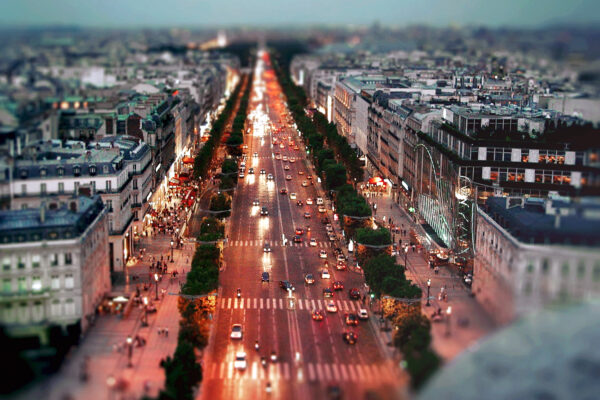
The first round of the French presidential election on Sunday laid bare many of the same cleavages that have opened up in other Western democracies recently.
Emmanuel Macron, the centrist former economy minister and the favorite to prevail in the second voting round in May, drew most of his support from the big cities and the prosperous west of the country.
Marine Le Pen, the leader of the nativist National Front, came in second overall but placed first across the economically depressed north of France and in the socially conservative southeast.
Five years ago, Le Pen split support in those areas with the mainstream conservative candidate, Nicolas Sarkozy, whereas the Socialist Party’s François Hollande triumphed in the cities and the west.
Urban-rural split
Recent elections in Europe and the United States have revealed similar urban-rural splits.
In the Brexit referendum, London and other cities voted largely to remain in the European Union while smaller towns and depopulated districts voted to leave.
Hillary Clinton did better than previous Democrats in America’s coastal cities, but she lost the presidential election in November when Donald Trump outperformed previous Republican candidates in industrial and rural states.
In the Dutch election last month, pro-European parties expanded their support in the densely populated western half of the country while the anti-EU Freedom Party consolidated its support in the periphery.
Exodus
The urban-rural split is exacerbated by an exodus of college graduates to the cities.
This “sorting” is a familiar phenomenon in the United States, where liberal states like California and New York have become more liberal over time while conservative states in the interior have become more conservative.
Something similar is happening in Europe. You would be hard-pressed to find a Freedom Party voter in Amsterdam or one of the Netherlands’ university towns, for example.
On Sunday, Le Pen received her lowest vote share in Paris, where Macron got 29 percent support. But the smaller the town, the higher support for Le Pen.
Similarly, and relatedly, 30 percent of college graduates backed Macron whereas 30 percent of those who didn’t finish high school voted for Le Pen.
It’s the same story with income: 32 percent of French voters making €3,000 per month or more backed Macron whereas 32 percent of voters with a monthly income under €1,250 voted for Le Pen.
New divide
These divisions aren’t new per se. What is changing is that the economic- and social-policy preferences of voters are converging into two camps.
High-income voters with relaxed social views used to face a dilemma: back a right-wing party with economically liberal but socially conservative views, like France’s Republicans, or a left-wing party that is socially liberal but economically illiberal?
Similarly, low-income voters often backed parties, like the French Socialist Party, that looked after their economic interests but whose social views were more progressive than their own.
Now the party system is changing to more accurately reflect the new political divide, which the Atlantic Sentinel has characterized as “blue” versus “red”.
Macron’s En Marche! is economically and socially liberal and appeals to “blue” voters. They are cosmopolitan, pro-European, globalist and irreligious.
Le Pen’s National Front is economically and socially illiberal and appeals to “red” voters. They are traditional, Euroskeptic, nationalist and while not necessarily observant do identify as Catholic.
Choice of civilizations
Richard Ferrand, a former Socialist Party lawmaker who now chairs En Marche!, has described Le Pen supporters as “reactionary, identity-focused neo-nationalists.”
Marion Maréchal-Le Pen, Marine’s niece and the darling of the National Front’s southern conservative wing, agrees the French face “a choice of civilizations” in this election.
The Guardian describes that choice as between a borderless business culture and a patriotic country that protects the way of life of its own workers; between free movement of people and the cultivation of French identity and French jobs; between Christianity and Islam; between globalism and France.
Finding a new middle ground
It looks like business, free movement and globalism will win out this year, but that doesn’t mean the other France will be vanquished. Indeed, as Shaun Riordan warned here the other day, a Macron presidency that fails to unite the traditional center-left and center-right might only polarize France further.
The likes of Ferrand and Maréchal-Le Pen do little to heal the blue-red divide with their rhetoric, which is dismissive of the other side. It is politically convenient for them to emphasize their differences, but the challenge for the center is to find a new middle ground; a new social compact that stops voters from giving the extremes a chance.
